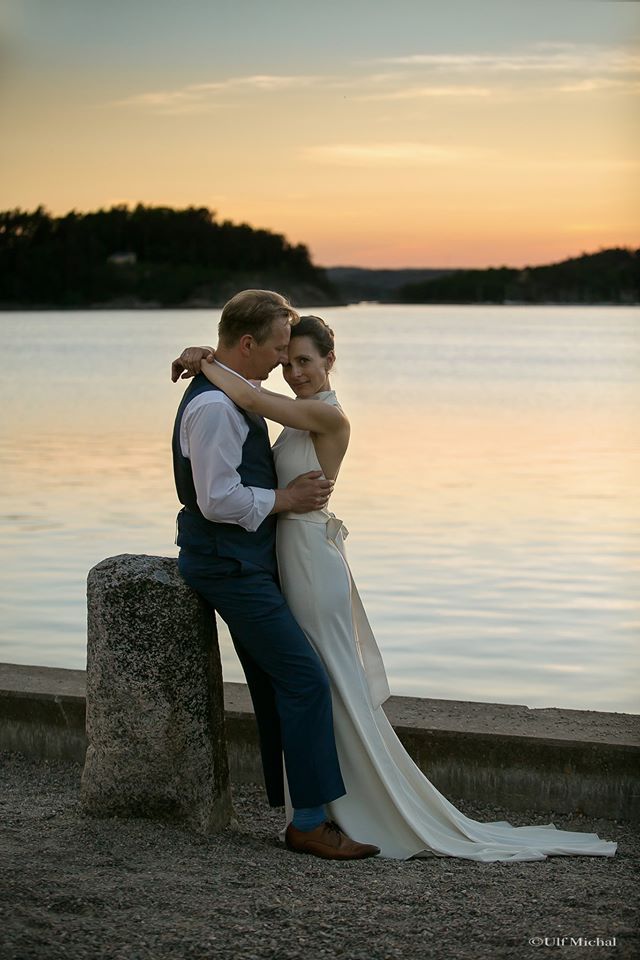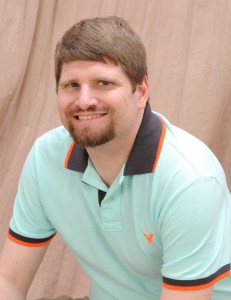“No diagnostic manual can truly explain the multi-faceted experience of autism,” Elisabeth Wiklander
By Ron Sandison
Elisabeth Wiklander was raised in a musically talented family. Her dad is a pianist, organist, and composer and mom a conductor, singer, and clarinetist. When Elisabeth was a newborn her parents played for her Bach’s 5th Brandenburg Concerto from a tape recorder in the delivery room. She learned to play the cello at age three according to the Suzuki method. Elisabeth was inspired by her dad’s concerts with the principal cellist of the Gothenburg Symphony Orchestra.
“I’d sit with two sticks on the steps to our house, pretending to play cello, and when the principal cellist saw it, he enrolled me in lessons. Dad and I played our first concert when I was five and we still perform to this day.”
Elisabeth’s parents continued to encourage her passion of music. “Mum was involved in my cello studies and dad and I played concerts, but it was especially encouraging to see them in action. Dad performed many big concerts when I was young. Mum and dad also performed together and I’d come along on their travels and concerts. Having music around was normal and it was wonderful. They pushed me when I needed it, but I was never forced to do anything.”
Music came naturally for Elisabeth while social interaction required strenuous effort. As a child Elisabeth had difficulty interacting with her peers and was bullied. She noticed her brain processed information literally and systemically. In conversations, Elisabeth sometimes lacked the ability to filter what she said and this caused children to laugh at her brutal honesty and offbeat comments.
Elisabeth’s bluntness clashed with her well-rehearsed fine manners.
“My grandfather was a priest in the Dome of Gothenburg for many years. After a service, there was a gathering for a special feast in the congregation house. A lot of people sat around long tables and ate. I had been neatly dressed up in a fine dress with smock and lace gloves and a little hat (something I hated). I sat next to an elderly lady with my grandmother opposite us, behaving very well for a five year old girl. Suddenly I turned to the old lady and politely stroke her cheek a few times with my hand saying, “Excuse me my lady, I just have to step outside for a huge blow-off!” I jumped off the chair and left the room, leaving the poor lady in a frozen state of disbelief. My grandmother who witnessed this from across the table made sure I never heard the end of it as it was shared around every Christmas dinner table.”’
Elisabeth loves nature and wildlife and to spend time at her family’s cabin in the countryside. Through nature and music she was able to express herself and feel peace. But Elisabeth’s greatest challenge when growing up was making her feelings understood. When she felt pain from sensory overload from smell or sound her family and friends thought she was just being overly dramatic.
As a young adult Elisabeth often felt confused and misunderstood. She did not know how to explain to others why communication drained her emotions and caused her to feel exhausted.
Elisabeth shares about her sensory issues, “Visual movement, like mingling people, will quickly tire me. I always have to remove tags on clothes, they are like knives on my skin. The best defense to avoid sensory overload is to not be tired when I expose myself to a challenging environment and to take small breaks throughout the event, like lifting the lid of a kettle to prevent it from boiling over.”
When Elisabeth was twenty-three, she learned that her dad had Asperger’s.
At that point in time, autism resources were very limited—this was the first time Elisabeth heard the term Asperger’s.
“My dad and I both love music and we think the same way. He finds socializing just as taxing as I do. His diagnosis was the beginning of my journey of self-discovery. When I was twenty-five my boyfriend at the time had brain surgery. While my boyfriend was recovering from surgery, he had no filter, no capacity to compensate for or ability to ignore what bothered him. So, everything that caused even the slightest friction in our relationship brutally surfaced in clear verbal messages. Hurt and confused, I contemplated the painful information.
Thanks to what I learned from my father’s diagnosis; I realized these qualities could be Asperger’s traits. I bought all the literature I could find and read it all. But as there was no literature specifically about females yet, my suspicions were mainly confirmed from relationship books where one partner had Asperger’s (almost always exemplified by the man). Although I had similar but also different traits than my male counter parts, the relationship issues mirrored my situation exactly.”
Broken relationships and mental health deterioration fueled Elisabeth’s search for answers.
“My romantic relationships would start very well, but after a couple of years they all lead down the same path (until I met my husband). They broke under the burden of confusing and painful misunderstandings due to neurological differences and inability to address needs in a language understood by both parties. Being neurologically different is like speaking different codes which are treacherously hidden within your own mother tongue. When dating, my autistic quirks could be either celebrated by an open-minded guy, or a repellent if conformity was important to him. I had always felt I had a ‘masculine mind,’ failing to follow normal dating norms and to live up to female stereotype expectations. I found it hard to interpret people’s intentions if they didn’t spell it out clearly.”
After researching autism, Elisabeth at age twenty-seven discovered she was on the autism spectrum and received a formal diagnosis from a psychotherapist. Seven years later on Autism Awareness Day she announced publically her autism diagnosis and presented a TEDx TALK Neurodiversity – the key that unlocked my world.
If we need a cure for anything, it’s not for autism. It’s for ignorance and intolerance.
Elisabeth felt freedom by sharing her autism diagnosis.
“Hiding your true self is crippling and puts you in a solitary confinement that eats away at your soul. But if we don’t create an environment that welcomes people to share who they are, they will keep considering hiding the better alternative. Telling the world I was autistic proved to me that the double empathy problem is very real and any human, autistic or not, have challenges when it comes to relating to a foreign feeling. So many people touched by autism stepped out of the shadows and approached me, my feeling of being part of a community really took form.”
“I saved a huge amount of energy for not having to mask so much, which was great for my mental health. When I started to make a name for myself as an autism advocate, many of the voices who had openly mocked me went silent. My life is not perfect but the freedom I’m experiencing now to be myself is indescribably liberating.”
Elisabeth credits autism for helping her music career as a cellist in the London Philharmonic Orchestra (LPO) by enabling her to keep intense focus under long periods of time, to not mind the long hours of social isolation that preparatory work often requires, and a natural talent for analytical thinking.
Elisabeth’s music career has taken her around the world.
“I’ve experienced so many of the world’s big cities across Asia, Europe and America. I normally don’t enjoy big cities that much because of the sensory assaults they often bring. I rather travel to a smaller place like Switzerland’s Lucerne. It’s small, surrounded by beautiful nature, cultured, everything is neatly organized and the people are friendly. And I love Swiss cheese.”
Through music Elisabeth met her husband.

“I met my husband, Damian, when he became my orchestra’s transport and stage manager. He learned I was autistic on our first date. Damian has learned so much about the autistic mind, he’s now a fluent “bilingual” in neurotypical and autistic communication. He also translates my experiences for his friends. With them I don’t have to waste energy on hiding my true self. Damian has an enormous capacity for love and compassion. He’s never embarrassed by my quirks which makes me feel normal and accepted.
“An example of his support was preparing me for his 40th birthday party. We just started dating and I didn’t know many of his friends. He made a couple of sheets of paper with pictures of his friend followed by some information on how he knows them and what they do for a living. This made me spend less energy processing new information at the party that had sensory challenges, it helped me initiate small talk and it reduced my anxiety levels significantly. My energy levels depletes quickly at parties when I have to navigate social cues/non-literal language, and process sensory input.
“Another example is that he created a secluded space for me on our wedding day where I could take timeouts if I became overwhelmed. Damian is the first person to understand me and I will love him to my last breath.”
Elisabeth shares dating tips for those on the spectrum.
“Be open about who you are from the beginning and make sure you know enough about yourself to create a platform of honest communication from which you can grow together. Autism is a huge part of who you are. Your needs might be unusual to your partner so being able to explain them helps your partner to understand you better. Additionally, be open about your quirks. This can diffuse awkward situations on the first date and help you meet the right person.”
Elisabeth encourages adults with autism seeking employment.
“No matter what skills you bring to the workplace or career you strive for—always be honest, reliable and persistent.”
Elisabeth’s diagnosis has empowered her to develop healthy relationships, “I felt exhausted trying to blend in by suppressing my autistic instincts. I created social expectations I couldn’t live up to. It was only when I took the approach in relationships that “we” are different and “we” need to understand each other that I gained genuine friendships. My current relationships are based on mutual respect; we are different and we need to understand each other’s neurological differences to fully appreciate each other.”
Elisabeth’s bio

Swedish-Canadian cellist Elisabeth Wiklander has a Master of Music and worked in The Netherlands Philharmonic Orchestra in Amsterdam before obtaining her current position as a member of The London Philharmonic Orchestra. She has taught students at music conservatories in Amsterdam, London and New York and is engaged in orchestral education as well as her orchestra’s community projects and workshops with students, homeless, elderly and disabled people. Elisabeth is diagnosed with Asperger’s and is an advocate for neurodiversity, holding the title Cultural Ambassador for the National Autistic Society in the UK. She is in high demand for her autism support, lecturing, scientific research and high profile media appearances.

Ron Sandison works full time in the medical field and is a professor of theology at Destiny School of Ministry. He is an advisory board member of Autism Society Faith Initiative of Autism Society of America. Sandison has a Master of Divinity from Oral Roberts University and is the author of A Parent’s Guide to Autism: Practical Advice. Biblical Wisdom published by Charisma House and Thought, Choice, Action. He has memorized over 10,000 Scriptures including 22 complete books of the New Testament and over 5,000 quotes.
He frequently guest speaks at colleges, conferences, autism centers, and churches. Ron and his wife, Kristen, reside in Rochester Hills, MI, with a baby daughter, Makayla Marie born on March 20, 2016. You can contact Ron at his website www.spectruminclusion.com or email him at sandison456@hotmail.com.








